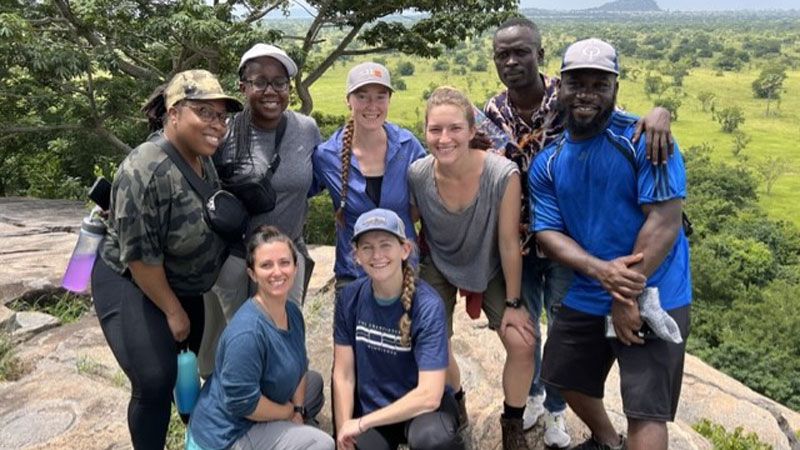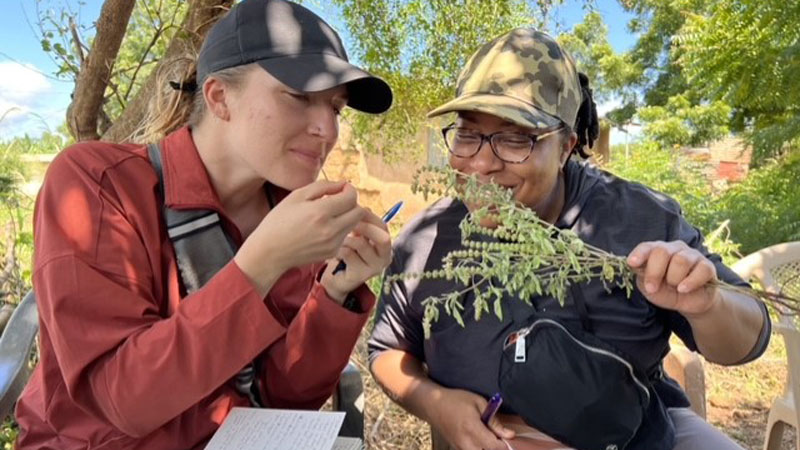Dr. Madeleine “Abena” Tuson-Turner leads Global Health Experience trip to West Africa to examine topics from the effects of colonial medicine to globalization to herbalism.

What does it mean to study global health?
Our naturopathic and Master of Science in Global Health (MSGH) students explored this question through multiple avenues this summer on our Global Health Trip to Ghana, West Africa. The trip was a major success overall! Experiential learning is at the core of this coursework and is supported with scholarly articles, covering topics from the effects of colonial medicine to globalization and the double burden of malnutrition, to public health and natural childbirth, to West African herbalism and clinical services in resource-poor settings.
During our first week, we shadowed highly skilled medical professionals in a public hospital. Each student had the opportunity to rotate through multiple departments including the labor and delivery ward, the nutrition clinic, the antenatal ward, the triage department, and the operating room (or “theatre” as they call it). As one of the more comprehensive hospitals in the area, it also enabled us to experience and reflect on the way public health systems function in urban environments.

After getting a small taste of the city life, we travelled to a remote village along Lake Volta to learn about traditional farming practices and traditional herbal medicine. First, we had to meet with the village chiefs who enlightened us with an in-depth presentation on the history of region. We participated in a traditional ritual and received their blessings for our exploration of village life. Bright and early the next morning we hiked out into the hills to learn about traditional farming practices. I think I can speak for everyone when I say that farming with a machete is much harder than it looks! We spent our last day in the village with a with a local herbalist and healer, walking through mountainous jungle trails identifying and discussing preparation of the local medicinal plants. We also toured the local rural clinic which was the only clinic within ten miles! The staff there were extremely knowledgeable and spoke frankly with us about the many challenges they experience on a daily basis trying to meet the needs of all the various community members and provide health care in such a rural setting.
In our downtime, we wandered through the bustling outdoor markets, watched gazelles chase each other through the savannah while on a hike through the Shai Hills Reserve, walked 100-feet in the air through the canopy of Kakum National Park, and enjoyed more of
the deliciously flavorful local cuisine than we thought possible. To top it all off, we were fortunate enough to have private traditional dance and music lessons from some professional dancer friends of ours!
By Dr. Madeleine “Abena” Tuson-Turner
Dr. Madeleine “Abena” Tuson-Turner has been working behind the scenes within the Ghana Ministry of Health for the last 11 years and is currently working on creating a sustainable research partnership with the Nyarkotey College of Holistic Health Sciences in Ghana, where she is an adjunct faculty member. By collaborating in academics and research, this partnership could offer further learning opportunities for ND and graduate-level students, as well as faculty exchanges.